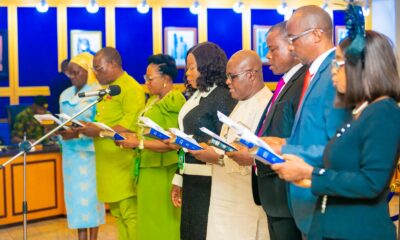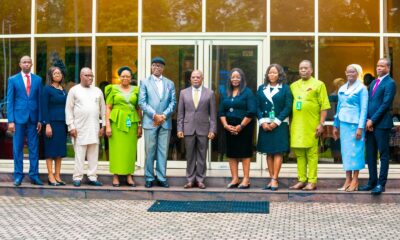Featured
Boko Haram Killed 847 Soldiers, Buried In Borno Cemetery, Ndume Reveals …48 Doctors Abducted In Two Years, NMA Laments
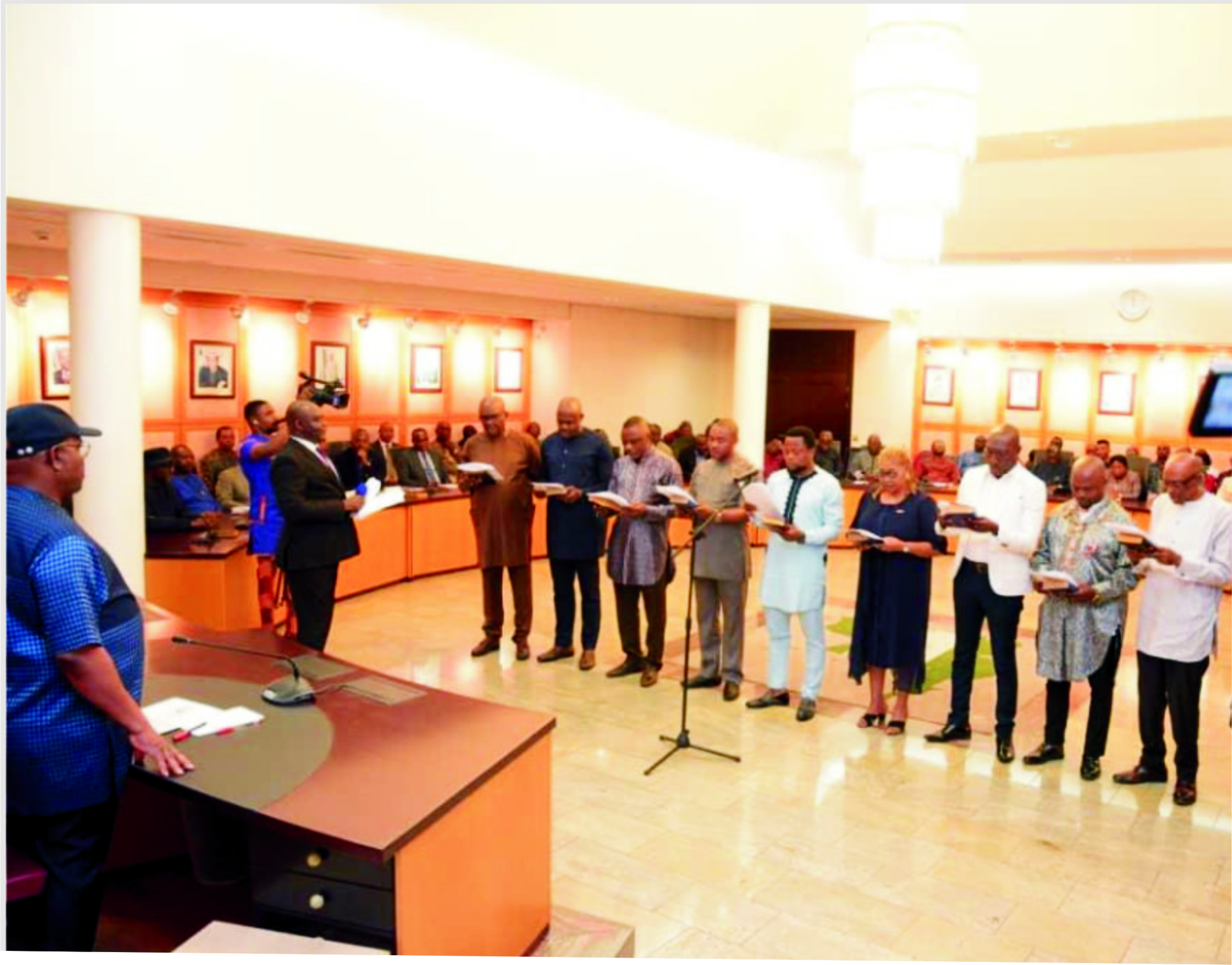
The Chairman, Senate Committee on Army, Senator Ali Ndume, said on yesterday that 847 Nigerian soldiers killed by the Boko Haram terrorists from 2013 till date were buried in the Military cemetery located in Maiduguri, the Borno State capital.
He said the figure did not include other soldiers killed by the insurgents and buried in other military cemeteries located in other parts of the North-East geopolitical zone.
Ndume, who stated this while briefing journalists in Abuja on the findings by his colleagues who recently returned from Maiduguri, however, denied reports of mass burial of soldiers killed by the terrorists.
He also said the Senate panel was already investigating allegations that some non-governmental agencies operating in the North-East were providing useful information to the Boko Haram leaders.
Ndume also dismissed claims of the existence of mass graves where soldiers killed by Boko Haram insurgents had been buried.
He said during the visit of his committee to theatre commands in Borno State, it was discovered that soldiers were under-equipped to confront the insurgents.
Ndume also decried the inadequate number of soldiers confronting insurgents.
He called on the government to recruit more men into the service to aid the fight.
However, as the Chairman, Senate Committee on Army, Senator Ali Ndume, yesterday, alleged that a total number of 847 soldiers were killed and buried in the military cemetery in Maiduguri, the Borno State capital, the Nigerian Army has challenged him to provide a proof to substantiate his statement.
Ndume had reported that 840 Nigerian soldiers were killed by Boko Haram terrorists from 2013 till date, noting that other soldiers killed by the same insurgents, and were buried in other military cemeteries are not inclusive.
But in a repost by Army’s spokesman, Col Sagir Musa, the Nigerian Army quashed the allegation, and challenged Ndume to provide a proof to substantiate his statement.
Musa said, “If he says so, then, he should substantiate. What is his source? Let him provide it”.
Similarly, the Nigerian Medical Association (NMA) has raised the alarm that no fewer than 48 medical doctors have been abducted across the country in the last two years.
Its National President, Dr Francis Faduyile, who said this in Akure during the association’s 2019 Physicians Week, described the development as worrisome and unacceptable.
Faduyile lamented that “Some of our members that were kidnapped in some cases even died in the kidnappers’ den.
“At least, two doctors have been kidnapped in two-third of the states across the country within the last two years.
“It is worthy of note that all is not well with Nigerian doctors, the kidnapping of our members in the course of discharging their duties to the Nigerian state with some still in captivity.
“Incessant harassment/assaults by patients and their relations and the unfortunate maltreatment by employers (government), ranging from poor general working environment and emoluments to irregular payment of salaries with arrears running to 12 months or more in some states.
“Our members, two in number, kidnapped in Taraba in the last six months have not been released by their abductors.
Faduyile, therefore, appealed to government at all level to be more responsive and responsible to the welfare of Nigerian physicians who are making selfless sacrifices to sustain healthcare delivery in the country amidst challenges, including incessant harassment, kidnapping in the line of duty.
“The abysmal physicians to patients ratio and rise in brain drain brought about mainly by the poor general working condition in the health sector”.
He said the theme of this year’s Physicians Week, “Care of the Unknown Patient” was chosen to bring to fore issues affecting Nigerians who suddenly find themselves in an unconscious state from traumatic cause to majorly road traffic accident or medical conditions.
The NMA regretted that the government “has not deemed it pertinent to accord the desired attention and value to this category of patients.
“There is a lack of commitment to the implementation of the National Health Act which provides for the care of patients in an emergency situation.
“There is no enduring policy to cater for victims of a road traffic accident which accounts for large numbers of unknown patients”.
Faduyile equally lamented that there is no policy statement that clearly addresses the various components of the emergency care service for victims of gunshot injury.
The association, therefore, called for “an enduring and unambiguous policy statement that takes into consideration the critical aspects of care in an emergency.
“We advocate for the provision of defibrillators at the strategic public arena and health facilities for the prompt care of patients with a heart attack and related conditions either in the hospital setting or before taking such patients to a health care facilities for proper care”, he added.
Featured
Rivers A Strategic Hub for Nigeria’s Blue Economy -Ibas …Calls For Innovation-Driven Solutions
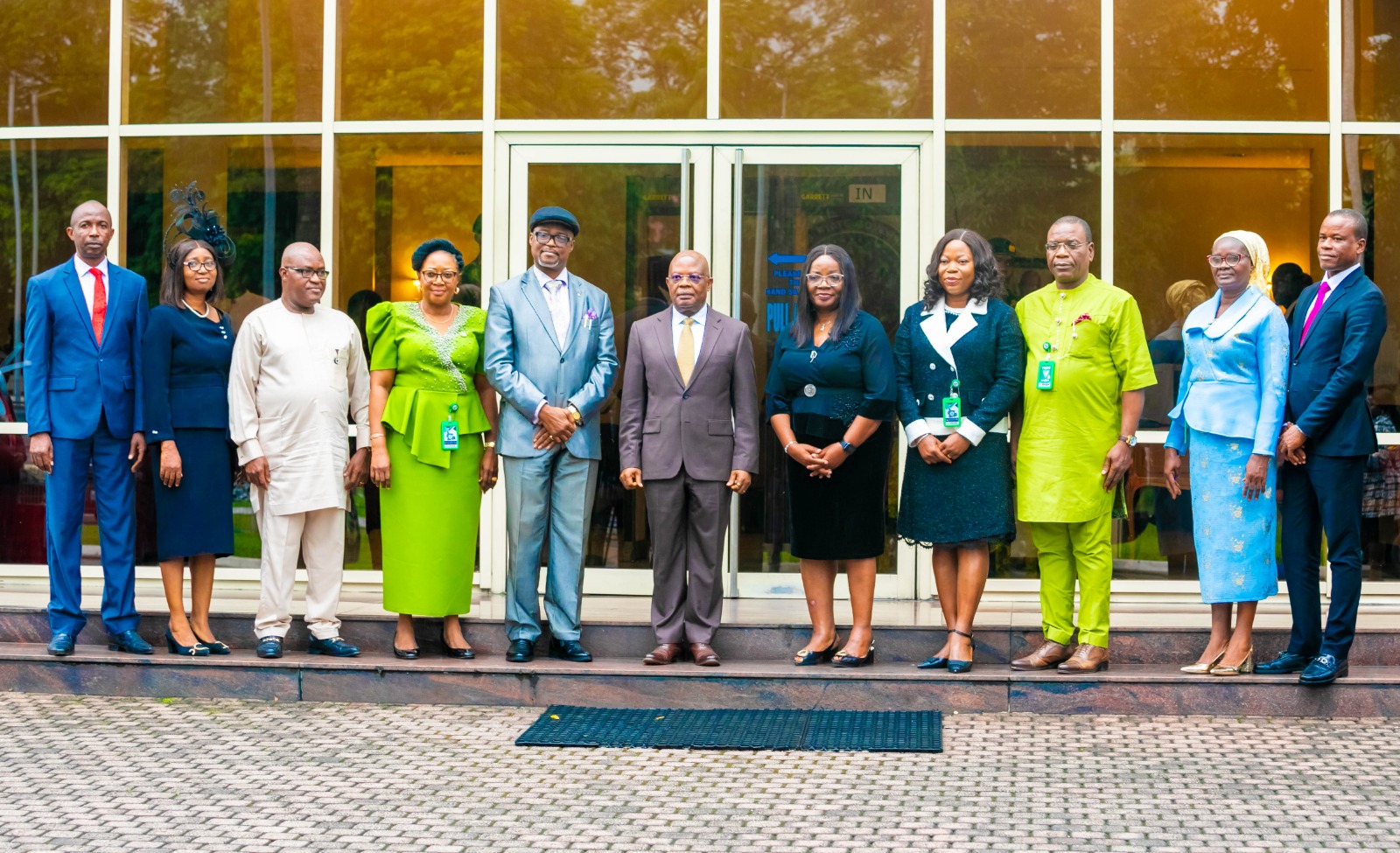
The Administrator of Rivers State, Vice Admiral (Rtd.) Ibok-Ete Ibas, has emphasized the need for innovation-driven strategies, strategic partnerships, and firm policy implementation to fully harness the vast potential of the blue economy.
Speaking during a courtesy visit by participants of Study Group 7 of the Executive Course 47 from the National Institute for Policy and Strategic Studies (NIPSS) at Government House, Port Harcourt, on Monday, Ibas highlighted the importance of diversifying Nigeria’s economy beyond oil by leveraging maritime resources to create jobs, enhance food security, strengthen climate resilience, and generate sustainable revenue.
The Administrator, according to a statement by his Senior Special Adviser on Media, Hector Igbikiowubo, noted that with coordinated efforts and innovative solutions, the blue economy could serve as a catalyst for inclusive growth, economic stability, and long-term environmental sustainability.
“It is estimated that a fully developed blue economy could generate over $296 million annually for Nigeria, spanning fisheries, shipping and logistics, marine tourism, offshore renewable energy, aquaculture, biotechnology, and coastal infrastructure,” he stated.
“We must transition from extractive practices to regenerative, inclusive, and innovation-driven solutions. This requires political cohesion, intergovernmental collaboration, robust infrastructure, and institutional capacity—all of which must be pursued with urgency and intentionality,” he added.
Ibas urged sub-national governments, particularly coastal states, to domesticate the national blue economy framework and develop tailored strategies that reflect their comparative advantages.
He stressed that such efforts must be guided by disciplined planning, regulation, and investment to maximize the sector’s potential.
Highlighting Rivers State’s pivotal role, the Administrator outlined its strategic advantages as follows:
•Nearly 30% of Nigeria’s total coastline (approximately 853km)
•Over 40% of Nigeria’s crude oil and gas output
•More than 33% of the country’s GDP and foreign exchange earnings
•416 of Nigeria’s 1,201 oil wells, many located in marine environments
•Two of Nigeria’s largest seaports, two oil refineries, and the Nigerian Liquefied Natural Gas (NLNG) terminal in Bonny Island—one of Africa’s most advanced gas facilities
Despite these opportunities, Ibas acknowledged challenges such as pollution, coastal erosion, illegal oil refining, unregulated fishing, inadequate infrastructure, and maritime insecurity.
He reaffirmed his administration’s commitment to institutional reforms, coastal zone management, and inter-agency collaboration to build a governance structure that supports a sustainable blue economy.
“Sustainability must be embedded in our development models from the outset, not as an afterthought. We are actively exploring partnerships in maritime education, aquaculture development, port modernization, and renewable ocean energy. We welcome knowledge-sharing engagements like this to refine our strategies and enhance implementation,” he said.
He urged the NIPSS delegation to ensure their findings translate into actionable recommendations that address the sector’s challenges.
Leader of the delegation, Vice Admiral A.A. Mustapha, explained that the visit aligns with their strategic institutional tour mandate on the 2025 theme: “Blue Economy and Sustainable Development in Nigeria: Issues, Challenges, and Opportunities.”
The group is engaging stakeholders to deepen understanding of policy efforts and institutional roles in advancing sustainable development through the blue economy.
Featured
INEC To Unveil New Party Registration Portal As Applications Hit 129

The Independent National Electoral Commission (INEC) has announced that it has now received a total of 129 applications from associations seeking registration as political parties.
The update was provided during the commission’s regular weekly meeting held in Abuja, yesterday.
According to a statement signed by the National Commissioner and Chairman of the Information and Voter Education Committee, Sam Olumekun, seven new applications were submitted within the past week, adding to the previous number.
“At its regular weekly meeting held today, Thursday 10th July 2025, the commission received a further update on additional requests from associations seeking registration as political parties.
“Since last week, seven more applications have been received, bringing the total number so far to 129. All the requests are being processed,” the commission stated.
The commission revealed the introduction of a new digital platform for political party registration. The platform is part of the Party Financial Reporting and Auditing System and aims to streamline the registration process.
Olumekun disclosed that final testing of the portal would be completed within the next week.
“INEC also plans to release comprehensive guidelines to help associations file their applications using the new system.
“Unlike the manual method used in previous registration, the Commission is introducing a political party registration portal, which is a module in our Party Financial Reporting and Auditing System.
“This will make the process faster and seamless. In the next week, the commission will conclude the final testing of the portal before deployment.
“Thereafter, the next step for associations that meet the requirements to proceed to the application stage will be announced. The commission will also issue guidelines to facilitate the filing of applications using the PFRAS,” the statement added.
In the meantime, the list of new associations that have submitted applications has been made available to the public on INEC’s website and other official platforms.
Featured
Tinubu Signs Four Tax Reform Bills Into Law …Says Nigeria Open For Business

President Bola Tinubu yesterday signed into law four tax reform bills aimed at transforming Nigeria’s fiscal and revenue framework.
The four bills include: the Nigeria Tax Bill, the Nigeria Tax Administration Bill, the Nigeria Revenue Service (Establishment) Bill, and the Joint Revenue Board (Establishment) Bill.
They were passed by the National Assembly after months of consultations with various interest groups and stakeholders.
The ceremony took place at the Presidential Villa, yesterday.
The ceremony was witnessed by the leadership of the National Assembly and some legislators, governors, ministers, and aides of the President.
The presidency had earlier stated that the laws would transform tax administration in the country, increase revenue generation, improve the business environment, and give a boost to domestic and foreign investments.
“When the new tax laws become operational, they are expected to significantly transform tax administration in the country, leading to increased revenue generation, improved business environment, and a boost in domestic and foreign investments,” Special Adviser to the President on Media, Bayo Onanuga said on Wednesday.
Before the signing of the four bills, President Tinubu had earlier yesterday, said the tax reform bills will reset Nigeria’s economic trajectory and simplify its complex fiscal landscape.
Announcing the development via his official X handle, yesterday, the President declared, “In a few hours, I will sign four landmark tax reform bills into law, ushering in a bold new era of economic governance in our country.”
Tinubu made a call to investors and citizens alike, saying, “Let the world know that Nigeria is open for business, and this time, everyone has a fair shot.”
He described the bills as not just technical adjustments but a direct intervention to ease burdens on struggling Nigerians.
“These reforms go beyond streamlining tax codes. They deliver the first major, pro-people tax cuts in a generation, targeted relief for low-income earners, small businesses, and families working hard to make ends meet,” Tinubu wrote.
According to the President, “They will unify our fragmented tax system, eliminate wasteful duplications, cut red tape, restore investor confidence, and entrench transparency and coordination at every level.”
He added that the long-standing burden of Nigeria’s tax structure had unfairly weighed down the vulnerable while enabling inefficiency.
The tax reforms, first introduced in October 2024, were part of Tinubu’s post-subsidy-removal recovery plan, aimed at expanding revenue without stifling productivity.
However, the bills faced turbulence at the National Assembly and amongst some state governors who rejected its passing in 2024.
At the NASS, the bills sparked heated debate, particularly around the revenue-sharing structure, which governors from the North opposed.
They warned that a shift toward derivation-based allocations, especially with VAT, could tilt fiscal balance in favour of southern states with stronger consumption bases.
After prolonged dialogue, the VAT rate remained at 7.5 per cent, and a new exemption was introduced to shield minimum wage earners from personal income tax.
By May 2025, the National Assembly passed the harmonised versions with broad support, driven in part by pressure from economic stakeholders and international observers who welcomed the clarity and efficiency the reforms promised.
In his tweet, Tinubu stressed that this is just the beginning of Nigeria’s tax evolution.
“We are laying the foundation for a tax regime that is fair, transparent, and fit for a modern, ambitious Nigeria.
“A tax regime that rewards enterprise, protects the vulnerable, and mobilises revenue without punishing productivity,” he stated.
He further acknowledged the contributions of the Presidential Fiscal Policy and Tax Reform Committee, the National Assembly, and Nigeria’s subnational governments.
The President added, “We are not just signing tax bills but rewriting the social contract.
“We are not there yet, but we are firmly on the road.”
-
Niger Delta22 hours ago
C’River Hands Over Rubber Plantation to Private Company
-
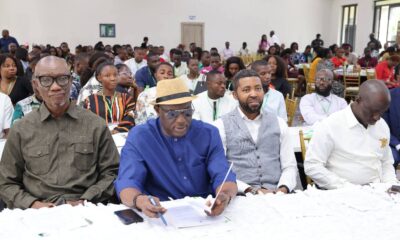
 Nation21 hours ago
Nation21 hours agoHYPREP Reaffirms Support For Ogoni Youths …Organises Workshop For Undergraduates
-
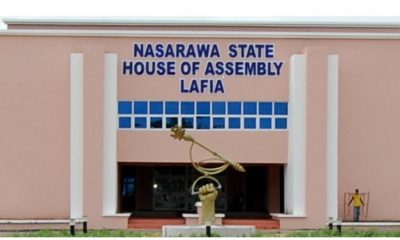
 Politics20 hours ago
Politics20 hours agoNasarawa Speaker Advocates Conducive Executive/Legislature Relations
-

 Business23 hours ago
Business23 hours agoIndustry Leaders Defend Local Content, … Rally Behind NCDMB
-
Niger Delta22 hours ago
Delta Leverages On Extensive River Networks To Drive Blue Economy
-
News21 hours ago
FG Renames University of Maiduguri After Buhari …As Tinubu Pours Encomiums On Late President
-

 News19 hours ago
News19 hours agoRivers PDP Debunks Sale Of LGA Election Forms
-
News23 hours ago
PCRC Dismisses Claims Of Police Strike As Fake, Mischievous



